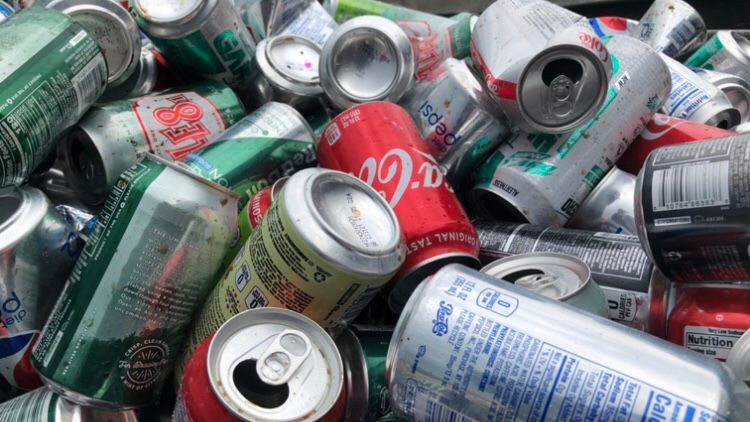CLEVELAND — Cleveland City Hall announced Friday curbside recycling is coming back to the city after it finalized a long-term contract with Rumpke Waste & Recycling.
The city ended its recycling program in 2020 after its contract with Kimble Recycling & Disposal ended.
“On Earth Day, we are proud to announce a fresh start for recycling in the City of Cleveland with a trusted local vendor as our partner,” said Mayor Justin Bibb in a statement. “Thanks to our program coordinator, the sustainability team and all involved in the process so far. Residents across the city have let me know that recycling is important to them, and we are ready to get started.”
The service will be of no cost to customers. Clevelanders will have a chance to opt in next month, and the program will launch in June.
According to the city, Cleveland’s Public Works Department will collect the recycling and transport the material to the Ridge Road Transfer Station. Rumpke will then take the recyclables to the Medina County Recycling Center for sorting. Rumpke will ship cardboard to end users and glass to Rumpke’s glass processing plant, located in Dayton. The remaining recycling will go to Rumpke’s Columbus Material Recovery Facility for further processing.
Since last year, Rumpke expanded its list of acceptable items:
- Plastic bottles, jugs, tubs (butter, sour cream, cottage cheese tubs as well as yogurt and fruit and yogurt cups) and disposable plastic cups
- Cartons
- Glass bottles and jars (any color)
- Aluminum cups and cans and steel cans
- Paper, paper board (cereal boxes, 12-pack containers, mail, etc.), cardboard and paper cups
Items that can't be recycled include:
- Plastic lids from paper cups
- Straws and stoppers
- Colored Solo brand cups
- Ceramic and glass cups are not accepted
- K-cups
More details are to come on the opt-in process, the city said.
The city had originally hoped to bring back recycling at the end of 2021 under the administration of former Mayor Frank Jackson. City council couldn't reach a contract agreement at that point. More than 27,000 households opted in to the program before it was dismantled.



